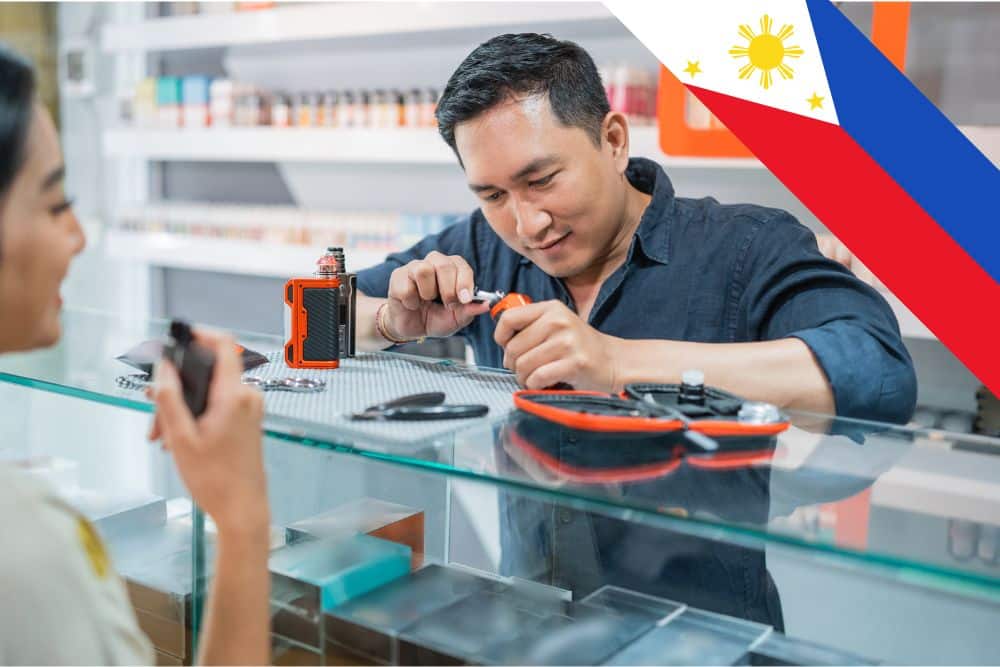The vape and e-cigarette industry’s expansion into the Philippines, with aspirations to establish the country as a manufacturing hub for these products, has sparked concern among medical professionals.
This trajectory, they warn, carries the ominous potential of fostering an epidemic of EVALI, or e-cigarette or vape-associated lung injury, particularly among the nation’s youth.
Alarming Trends Among Filipino Youths
The latest Global Youth Tobacco Survey paints a troubling picture. It revealed that approximately 1 out of every 7 Filipino youths aged 13-15 are now using vapes. Dr Maricar Limpin, a pulmonologist associated with the Action on Smoking and Health (ASH), has issued a stark warning.
The warning addresses the concerning trend of vaping youths to the calculated marketing tactics employed by the tobacco industry, specifically targeting the youth demographic. The appeal of vaping among adolescents is propelled by a confluence of factors. They include the availability of flavoured e-cigarettes, slick marketing campaigns that glamorise the practice, and the pervasive misconception that vaping is a safer alternative to traditional smoking.
The Risk of Turning a Blind Eye
Dr Limpin underscores the peril of permitting the Philippines to become a manufacturing powerhouse for e-cigarettes. She points to the escalating instances of EVALI. She noted that what began as an isolated case in 2019 has become a more widespread concern. Currently, there is no concrete data on EVALI cases in the Philippines. However, the country’s first recorded instance occurred in November 2019. It involved a 16-year-old girl who was a user of both vape and traditional cigarettes.
Understanding EVALI and its Implications
EVALI represents a grave medical condition characterised by lung damage stemming from the inhalation of substances present in vaping products. In the United States, EVALI has gained significant attention. Nearly 3,000 patients were hospitalised due to the condition as of February 2020, with 68 fatalities reported.
The emergence of EVALI has raised profound concerns regarding the safety of vaping. This is prevalent among young users who may be oblivious to the potential hazards inherent in these products. Dr. Riz Gonzalez, chair of the Philippine Pediatric Society Tobacco and Nicotine Control Advocacy Group, stresses the urgent need for legislators to revisit Republic Act 11900. This act transfers regulatory authority over vapes from the FDA to the Department of Trade and Industry (DTI). She highlights the tactics employed by the tobacco industry to ensnare young consumers. She also underscores the imperative of preempting an EVALI crisis through vigorous legislative action.
Advocating for Public Health
Au Quilala, deputy executive director of the Philippine Legislators’ Committee on Population and Development, implores the government to prioritise public health over industry interests. She emphasises the critical necessity of curtailing marketing tactics designed to entice children. She also warns against the Philippines descending into what she terms a “vape colony.”
As deliberations persist, the imperative remains: safeguarding Filipino youths’ health and well-being. Effective regulatory measures, public awareness campaigns, and collaborative efforts among stakeholders are indispensable in combatting the pernicious influence of vaping and safeguarding the nation’s future. It is incumbent upon governmental bodies, healthcare professionals, educators, parents, and advocates to unite in confronting this formidable public health challenge head-on. They must ensure that the allure of vaping does not poison the health of the nation’s youth.

